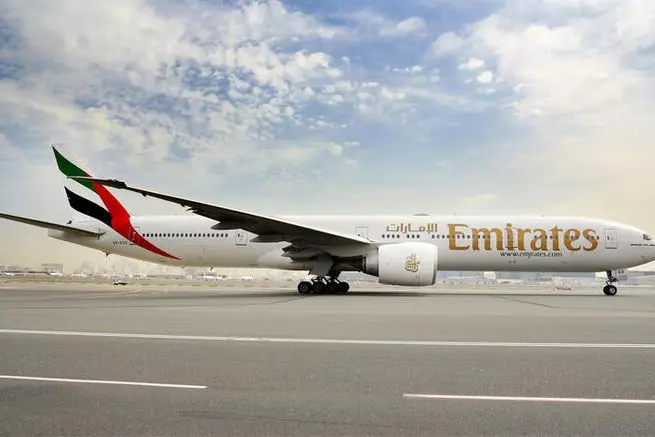PHOTO
Emirates Airlines is converting nearly a dozen of its passenger aircraft into mini freighters to accommodate more cargo, as the coronavirus pandemic has created vast demand for airfreight service.
Technical teams are currently working to strip at least ten Boeing 777-300ERs of Economy seats that have been idled by the massive decline in passenger numbers and coronavirus restrictions.
Cargoes being transported from overseas are normally held in the bellies of passenger aircraft. With the changes, Emirates’ Boeing planes will be able to carry an additional 17 tonnes or 132 cubic metres of goods, on top of the 40 to 50 tonne-cargo capacity in the belly hold.
In a statement on Thursday, the airline said the modifications of the 10 Boeing 777-300ERs are being done at the Emirates Engineering facilities in Dubai.
So far, engineers have removed the seats from seven aircraft, with three more due to be ready by mid-July 2020. By the end of the project, the technical team would have removed 3,050 passenger seats.
“Converting our passenger aircraft to these mini freighters is certainly a sign of the times. Our teams have shown resilience, an innovative spirit and adapted quickly to the needs of the changing business environment,” said Ahmed Safa, divisional senior vice president at Emirates Engineering.
Passenger demand has been decimated due to the coronavirus pandemic, leaving airlines with no choice but to ground a huge proportion of their fleet. However, some carriers like Emirates, the largest operator of A380 aircraft, have taken the opportunity to put their idle fleet to good use as demand for cargo spiked, particularly during the lockdown.
The airline has joined other carriers worldwide in restarting passenger air travel recently. However, demand is expected to remain low as it will take some time to restore passenger confidence.
Emirates president Tim Clark said early this month that an “enormous proportion” of their fleet has been utilised to transport goods as the airline look to cargo services to cope with passenger slump.
“We’ve taken the seats out [in some of the aircraft] as demand for PPE (personal protective equipment), drugs skyrocketed. There’s been an acute shortage [of cargo capacity] and we’re able to move quickly,” he added.
“[But] that’s not going to deal with the loss of passenger income. We’re trying to mitigate the effects of having the whole A380 [fleet] on the ground with all crews in place,” Clark said during a webcast.
The International Air Transport Association (IATA) estimated that airlines in the UAE and other Middle East countries could face revenue losses worth $4.9 billion due to the pandemic.
Carriers like Emirates and Etihad had earlier confirmed having imposed some job cuts to cope with the losses.
(Reporting by Cleofe Maceda; editing by Seban Scaria)
#Emirates #COVID-19 #Aviation #Cargo
Disclaimer: This article is provided for informational purposes only. The content does not provide tax, legal or investment advice or opinion regarding the suitability, value or profitability of any particular security, portfolio or investment strategy. Read our full disclaimer policy here.
© ZAWYA 2020





















